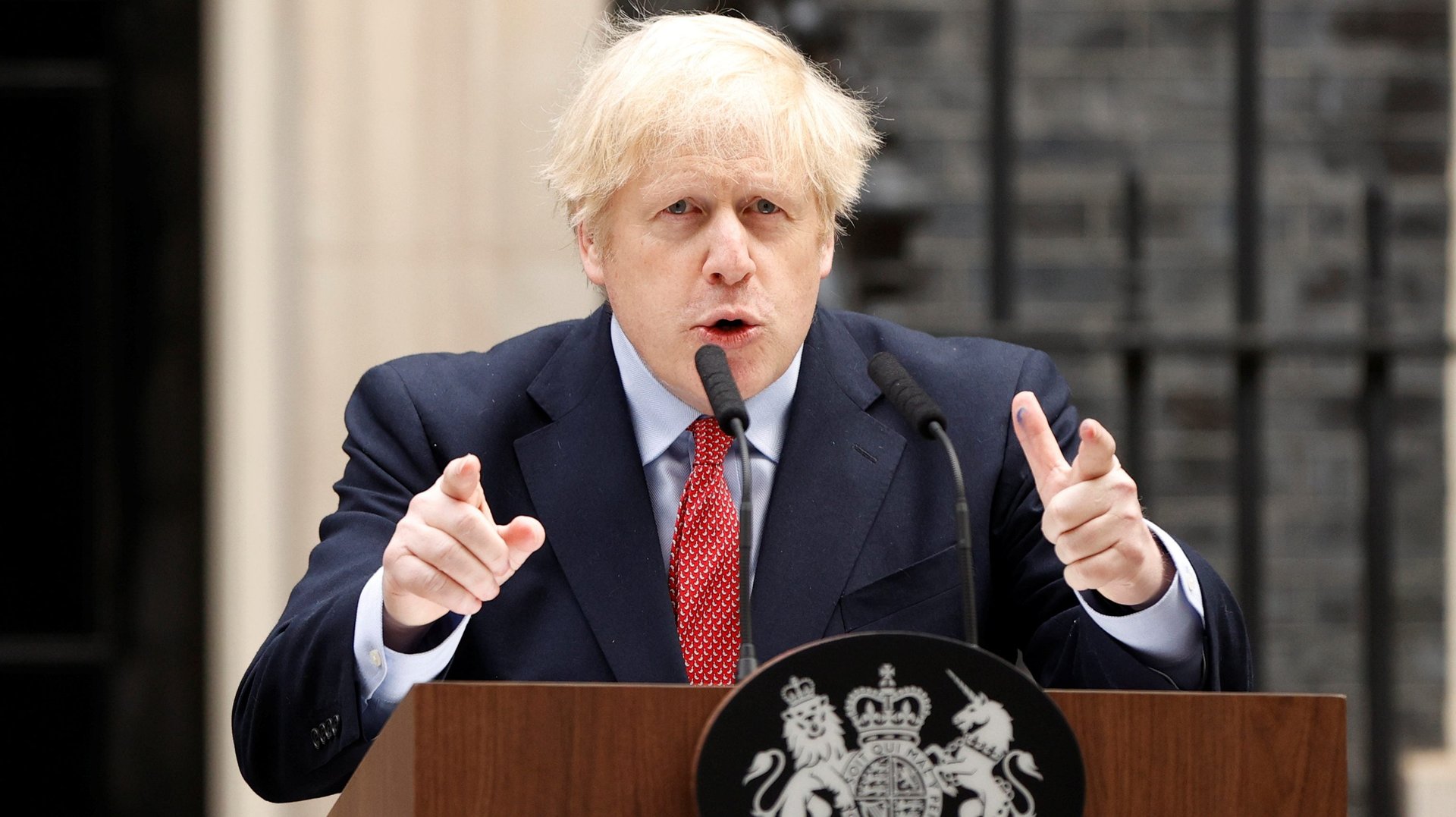Boris Johnson’s illness might change his approach to the UK’s coronavirus crisis
Britain’s prime minister Boris Johnson was back at work today, after recovering from a serious bout of Covid-19. Speaking outside 10 Downing Street this morning, he said the UK is still in danger.


Britain’s prime minister Boris Johnson was back at work today, after recovering from a serious bout of Covid-19. Speaking outside 10 Downing Street this morning, he said the UK is still in danger.
“I refuse to throw away the sacrifice of the British people… and risk a second peak [of coronavirus infections],” he said. They were solemn words for someone who has been through a lot lately. Here’s a recap:
An illness that shook the nation
Johnson became the first world leader in late March to confirm he had tested positive for coronavirus. Although the prime minister and his aides insisted he had mild symptoms and was “in good spirits,” that narrative was abandoned on April 5 when Johnson was admitted to hospital. The next few days were disquieting for the country, especially after he was transferred to intensive care.
He would eventually recover. But commenting on his own illness after being discharged on April 12, Johnson said that “it could have gone either way.” He thanked the NHS, and the two immigrant nurses—Jenny from New Zealand and Luis from Portugal—for remaining by his bedside during this time.
It was a jarring turn of events for Johnson—a man who weeks earlier appeared to downplay the severity of coronavirus. “I was at a hospital the other night where I think there were actually a few coronavirus patients, and I shook hands with everybody, you’ll be pleased to know,” he said.
Johnson’s keep-calm-and-carry-on ethos dates back a while. After all, this was a man whose political role model was a fictional character in a 1970s Steven Spielberg thriller: “The real hero of Jaws was the mayor, a wonderful politician. A gigantic fish is eating all his constituents and he decides to keep the beaches open,” he once said.
But that kind of outlook might not be best during a pandemic—experts say it’s better to over- than under-react.
The UK took a long time to act
There have been more than 20,000 Covid-19 deaths in hospitals in the UK. The worst days—including April 20 and April 9—saw the number of casualties surpass even the peaks seen in Italy or Spain, the hardest-hit European countries to date.
And during the early part of the outbreak, Johnson was often absent. Cobra, the UK government’s emergency committee, held its first discussion about coronavirus on Jan. 24, but he skipped the meeting. Johnson would miss four subsequent ones, in part because he spent two weeks at his country retreat, before finally attending on March 2.
Those weeks were crucial. The UK was already short on personal protective equipment, the country had one of the lowest per capita number of intensive care beds in Europe, and the Brexit saga had put training for key workers on pandemic response on hold.
On March 12, Johnson told the public that the possibility of stopping community spread was gone, and that the government was moving to the “delay” phase in its coronavirus response. The UK’s chief scientific officer, Patrick Vallance, made a remark that the country would seek some level of “herd immunity,” comments that sparked sharp criticism.
A few days later, on March 16, a team led by Neil Ferguson at Imperial College London forecast that there could be hundreds of thousands deaths if more decisive action was not taken, and that the NHS would be overwhelmed. That day, Johnson told Brits to avoid all non-essential contact, and a full lockdown took effect on March 23, later than other European countries.
What comes next?
The number of people being hospitalized has slowed since Johnson’s recovery, but not to the level public health officials have hoped for. Once this is all over—which could be a year or more away—the UK death toll could be one of the highest in Europe.
But despite the grim forecasts, there is an opportunity for Johnson. He is neither a conventional politician nor a typical Tory. In the last election, Johnson ran on a platform (pdf) that bucked his own party’s recent views on public spending.
He could pour money into the NHS—the institution that “saved” his life—and position himself as its biggest advocate. But first, he’ll need to decide how long the lockdown should stay in place, with a formal review due by May 7.
Johnson has in the past shown a willingness to recognize mistakes. “OK, in that instance he [the mayor of Jaws] was wrong. But in principle we need more politicians like the mayor,” he said of the character’s decision to keep the beaches open. Today, Johnson appeared willing to carry on with the lockdown for as long as needed. One wonders whether his own illness could make the difference.